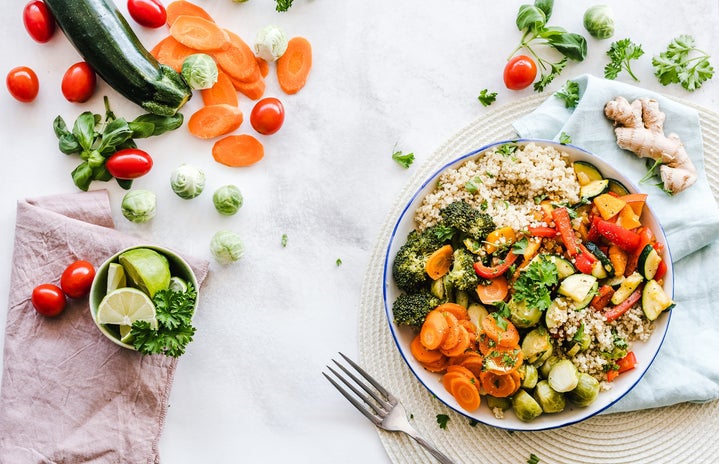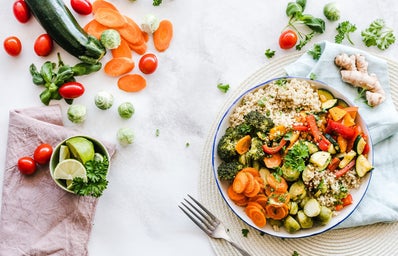Vegans get a negative reputation for being extremists. However, once you understand why vegans choose to live the life they do, you may begin to think vegans are not the extreme ones after all. Allow me to explain…
Vegans are individuals who do not eat or use any food (or products) derived from animals. Individuals usually decide to go vegan for one of three reasons, that is, the environment, the animals and health.
Environment:
The greenhouse gas emissions from the world’s animal agriculture sector are more detrimental to our planet than the entire transportation sector COMBINED (planes, trains, cars, buses, etc.). The agriculture sector accounts for one-fifth of total greenhouse gas emissions. Methane is 25-100 times more destructive than carbon dioxide, and cows produce 150 BILLION GALLONS OF METHANE PER DAY. Therefore, eating a vegan diet is one of the most significant ways to help reduce the current climate crisis. The ever-growing agriculture sector is destructive to our planet for other reasons than just massive GHG emissions. Some examples include deforestation to clear land for more crops or livestock, overgrazing, ruining soil use and fertilizers and pesticides destroying ecosystems, water, air and soil. 700 million people suffer from water scarcity worldwide, yet 23% of the planet’s freshwater is used for livestock production at rapid rates. Nearly one billion people go to bed hungry every night and at least 50% of the world’s grain is fed to livestock. We are currently growing enough food to feed TEN BILLION PEOPLE but still cannot end world hunger. These are massive numbers and massive implications for our current climate and humanitarian crises, and this list of issues only continues to grow. By going vegan, you significantly reduce your carbon footprint every single day and help the demand for these unsustainable practices to continually decrease.
Animals:
Protecting animals is often what vegans are known for and believed to be the only driver of going vegan. However, many do not actually go vegan for the animals; the saving of animals is just an added benefit. Vegans get a bad reputation as their activism against animal cruelty seems extreme to some. In some cases, individuals may take it a step too far, but typically the motivation for this activism is never malicious. Once you are aware of what the meat and dairy industries do to innocent animals, you may start to believe vegans are not the extreme ones. The extreme ones are the factory farms that selectively breed, genetically modify, forcibly impregnate, mutilate and take away babies from their mothers and unethically kill billions of animals. Even though your carton of eggs says it is “organic” and “free-range,” it fails to explain how many male chicks were put on a conveyor belt to be gassed, suffocated and ground up in a grinder. I encourage you to research how your burger or chicken nuggets were made, meaning how the cows and chickens were killed. It also sounds extreme when vegans refer to beef burgers as cow carcass or rotisserie chicken as chicken flesh. However, the intention behind this is to break the barrier that the meat and dairy industry has produced in order to separate innocent animals from the delicious meat on our plates. I know it is weird to picture a life without the consumption of dairy or meat because that is the norm that has been pushed upon us, however, the key point to remember is nothing humane happens within factory farming.
Health:
The vegan diet challenges almost all the nutritional advice we have been given our entire lives. Research shows evidence that links consumption of animal products to the world’s leading diseases and illnesses. There are lots of meats that are particularly high in fat (including saturated fat). Eating these amounts of saturated fats daily will increase cholesterol levels in the blood, leading to more detrimental diseases such as type two diabetes, coronary heart disease, strokes and even certain cancers. The amount of research that has linked meat to the leading diseases worldwide is increasing every day but this has just not been made very public, as the meat and dairy industries have a large say in modern society since they are tied to the government. Plant-based foods are full of great nutrients for our body including antioxidants, amino acids, fiber, fatty acids, etc. In comparison, some meats such as bacon and sausage are classified as CARCINOGENIC to humans by the World Health Organization, with the same ranking as cigarettes. I encourage you to do more research on the health benefits of including more plant-based meals in your consumption. The first link under sources below is a YouTube video by the channel Yes Theory that showcases the health benefits of a vegan diet, even for just 30 days! I also recommend watching What the Health on Netflix, as it will answer all your questions and concerns including the big question: how do vegans get protein?
Factory farming and the demands on the agriculture sector drive these unethical practices as well as inspire more and more individuals to become vegan. The agriculture industry is one of the fastest growing sectors today due to historical changes in population growth, income growth and urbanization. However, this is not our be all end all. Due to increasing amounts of research and education, veganism is growing at rapid rates. I encourage everyone reading this article to check out some more resources, including the ones I have linked below. Try watching some documentaries on Netflix such as Cowspiracy and Knives Out to gain more insight. I truly think after gaining all the knowledge that I have so far on this topic, that even cutting down a bit on meat and dairy consumption can go a long way. I hope this article inspires you to do some more research of your own, as well as show you a glimpse of the lens through which vegans see the world. All in all, there is nothing extreme about wanting to protect the environment, save animals and improve individual health.
Sources:
https://www.cowspiracy.com/facts
https://www.ncbi.nlm.nih.gov/pmc/articles/PMC2935116/
https://www.whatthehealthfilm.com/
https://www.cbc.ca/news/science/male-chick-culling-technology-1.3647228


